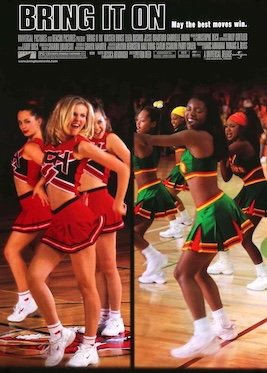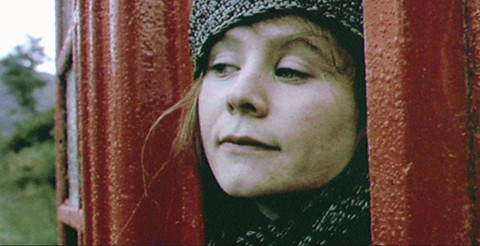Actually "nice" isn't quite the right word--better to say that although it looks fairly unrelentingly at the dark, it does not scorn the light, strangely does not wallow in misery.
However, that said, fair warning: There's a famous quote from Francis Ford Coppola who said of his film Apocalypse Now, referring at least in part to the mind, body and soul-breaking experience of making it:

"My film is not about Vietnam, it is Vietnam."
Well, Melancholia is not about depression. It is depression. It gets misery so right that it literally sickened me (insert here joke about my stomach for the Saw films' gore).


Yet in the end, by the very end, I felt spoken to. As though someone had painted a portrait (and the look of the film is quite painterly) in which I recognized...oh what the hell, I'm just going to dive into pretension here-part of my soul.

(This is as good a place as any to link to this NPR interview with Dunst about the film.)

That it does not overindulge in the blue colors is due in part, but only in part, to Kirsten Dunst. In what I take to be an imaginary sequence at the films' beginning, she is shot so lovingly that she instantly gained my affection.

Which was good, because the character was going to need it.
Incidentally, this is what I mean by painterly.
You kind of expect that it will be dark, given the title, and if you go in knowing something about the plot:
 A young woman tries to fight off her depression long enough to enjoy her wedding night...while the end of all life on Earth is in the stars.
A young woman tries to fight off her depression long enough to enjoy her wedding night...while the end of all life on Earth is in the stars.
Obvious but necessary statement: Dunst is a woman now. Obviously in physicality, she's been one this whole century (yes, even when she was "Bringing It On")--but what I'm referring to is the female human adult that this film lets her step into playing.
The difference between this and arguably her most famous roles as the attractive, nay beautiful Mary Jane in Sam Rami's Spider-Man films

and
 the cheerleading captain in Bring It On, is night and day.
the cheerleading captain in Bring It On, is night and day.Much of the talk here and elsewhere about this film is about Dunst; with good reason, but I must remind myself not to be stinting in my praise of Charlotte Gainsbourg who has the less-showy, maybe even more admirable performance.


She's Dunst's sister who tries to do the decent thing but deep, deep down suspects that her sister may be right about the meaning of lives (not a typo) or lack thereof.
Life is only on Earth. And not for long.
I was not crazy about the first (and last) Lars von Trier movie I saw, which was Breaking the Waves, another film about a mental breakdown and a marriage.

I'm afraid I just couldn't see how nobody in the coastal town of that film would help Emily Watson's clearly distressed young woman.
No matter how buried their collective throats were by the boot of religion.
A similar question pops up here through the first half of the movie, namely, has no one in Dunst's circle heard of Prozac? In the second half, though, as the movie's spotlight of destruction widens out from just the one person to the whole world; then contracts again to just a few...Prozac hardly would've spoken to the reality of the situation.



1 comment:
I just watched this film last night and I couldn't agree more. I'm actually looking forward to seeing a few more of this director's films, even if they aren't quite so believable in the helpless despair...
Post a Comment